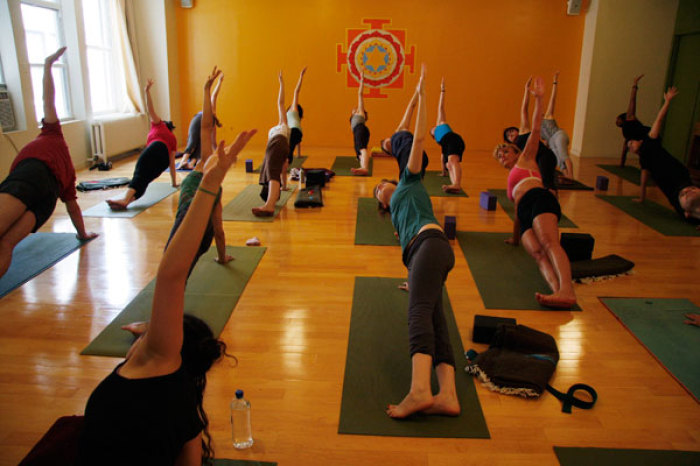Christian Op-Ed Calls Yoga 'Demonic Worship'; Editor Welcomes 'Counter Culture' Views

A writer at John Brown University has caused quite a stir with her op-ed for the school's paper, "Threefold Advocate." Deborah Raiees-Dana wrote the op-ed, entitled "Rethink Yoga," which criticized the practice and left Editor-in-Chief Sidney Van Wyk to release a statement assuring students that Raiees-Dana's voice was one of many and did not represent the entire publication.
"This column is not a theological exegesis, but rather a heartfelt cry," Raiees-Dana wrote. "I understand that yoga has become an accepted part of the American culture. The National Institute of Health promotes it vigorously and much of the Church has accepted it as harmless. I have to disagree. As I have been thinking of all the arguments and reasons why yoga is not as beneficial as we've been led to believe, it all keeps coming back to the fact that yoga has its roots in the worship of demonic Hindu gods."
It is a fact that yoga has its roots in Eastern religions such as Hinduism, Buddhism, and Jainism. However, it has spread across the world, and practitioners have made it part of their routine spiritual and physical routines. But there are those who see it as a dangerous practice when it comes to spiritual belief.
One such person is Laurette Willis, founder of Praise Moves, which presents "a Christian alternative to yoga." Willis practiced yoga for some time before coming to the conclusion that it was interfering with her Christian beliefs; she decided to found her own practice, named Praise Moves, and base it upon Christian scripture. She cites Dr. George P. Alexander, who taught World Religions at Biola University, as one of her friends and mentors when it comes to determining the root of yoga.
"Many Westerners who practice yoga today are unaware that the physical positions assumed in yoga symbolize a spiritual act: worshiping one of the many Hindu gods. To a Hindu, yoga is the outward physical expression of a deep spiritual belief," Alexander says. "You cannot separate one from the other."
"I believe that while yoga may offer some benefits, those benefits have hidden, demonic strings attached," Raiees-Dana continued. "I spoke to one of our chapel speakers years ago about this. He was a Dalit 'untouchable' from India who had become a Christian. His view is that yoga is the beautiful face that the very ugly religion of Hinduism uses to sell itself to Americans."
Yet there are those who see yoga not as a religion in itself but "a spiritual practice that will strengthen your belief," according to John Cain, chairman of The British Wheel of Yoga. He sees the opposition to yoga as a "misunderstanding" and can cite persons of faith who practice yoga and have seen benefits.
"I can understand their position," Rev. Jonathan Hopcraft told the Independent about those against the practice of yoga, "as some groups are secular, but some are based on Hinduism, especially the mantra." Hopcraft has practiced yoga for many years and says there is no conflict with his faith in God.
The Editor-in-Chief of "Threefold Advocate" has issued a statement about the op-ed that caused such a commotion.
"As published weekly in our Op/Ed section, 'Views expressed by columnists or in Letters are not necessarily the views of the publisher, advisor, or staff.' It is unfair to treat the views of one columnist as the views of John Brown University, the Threefold Advocate or the University's general student body on our diverse campus. All opinions, even those considered 'counter-culture,' as Raiees-Dana described her own, are welcomed in our paper and we often publish columns side-by-side that are in direct disagreement with one another," Van Wyk wrote.




























